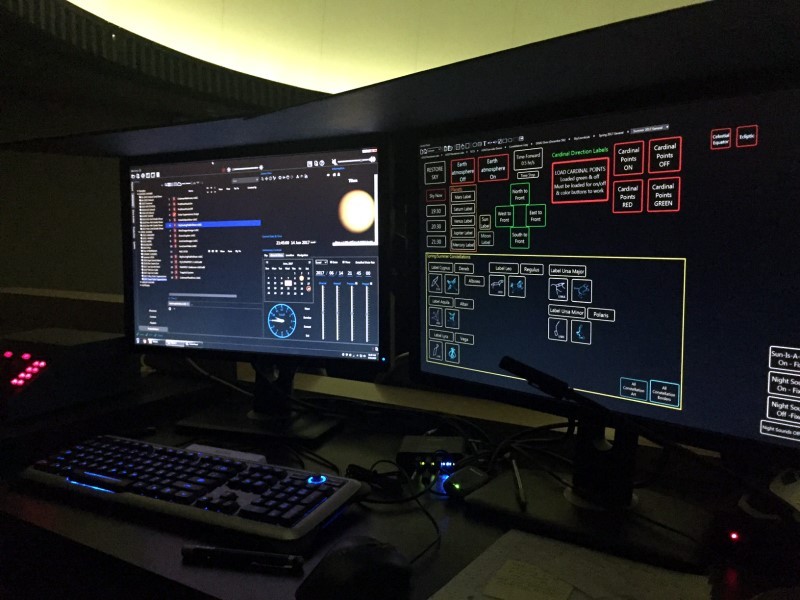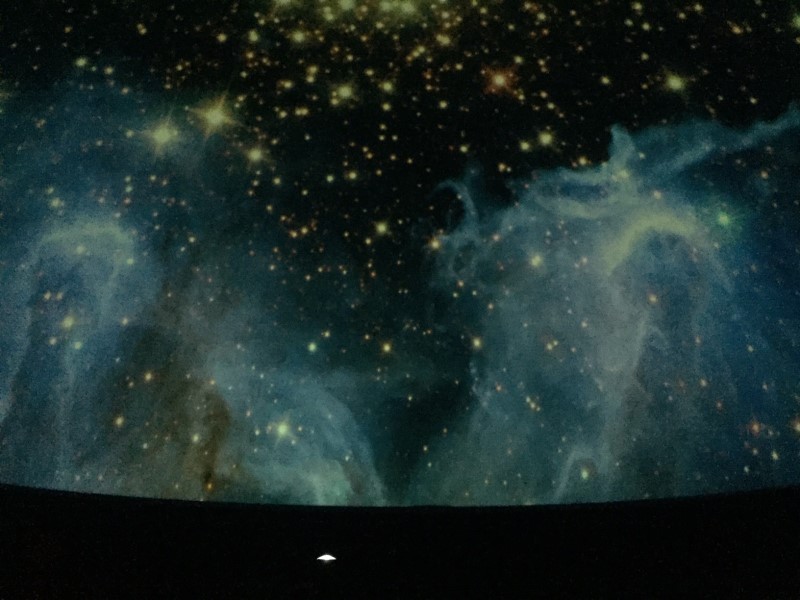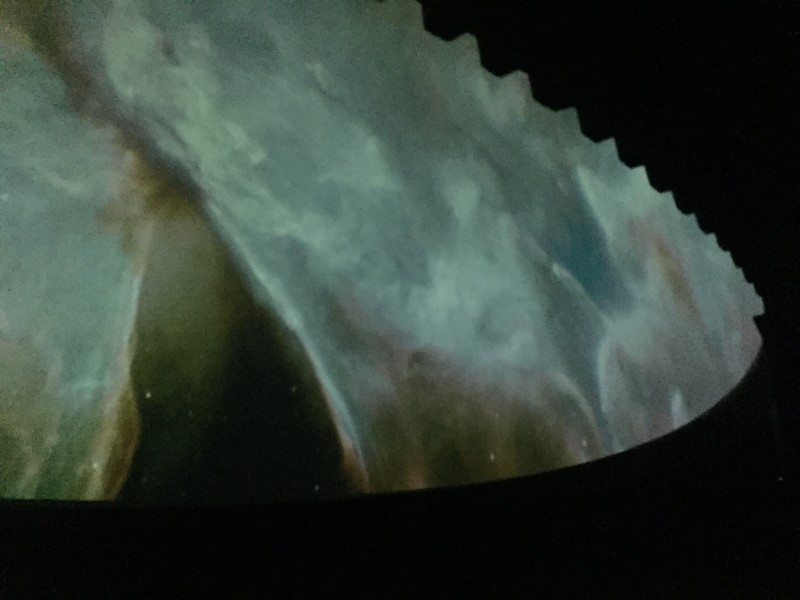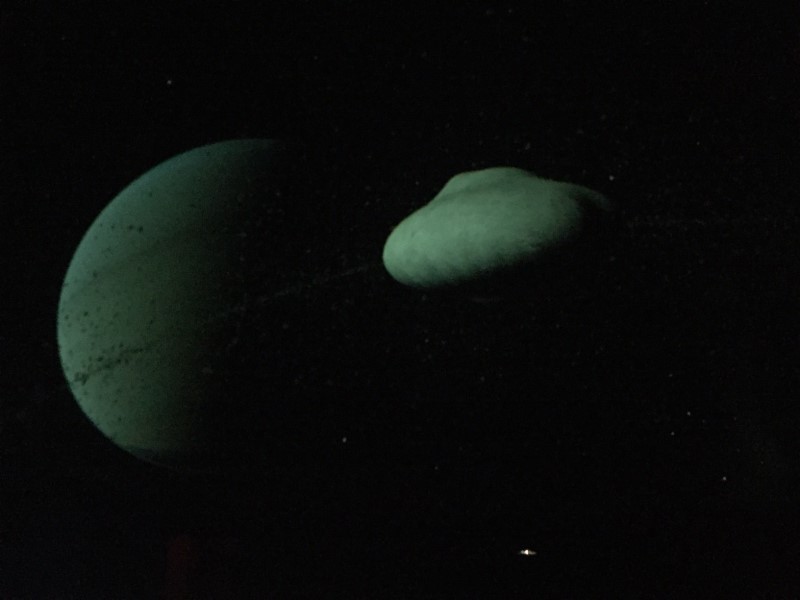Tucked in the Health and Natural Sciences building at the University of North Georgia sits the Coleman Planetarium, a large dome that can project the night sky and space from the comfort of indoors.
For this week's adventure I spoke to Dr. Lesley Simanton-Coogan, planetarium director and lecturer at the university. Dr. Simanton-Coogan told me the Coleman Planetarium has been around since about the 1980's but was moved to new Health Sciences building recently. Even more recently, about two years ago, the planetarium added a digital projector. "Originally the projection system would have been analog, so it would have only shown the night sky. You could pretty much only project little points of light for the stars," said Simanton-Coogan. "With the digital projector now, we can show movies, we can fly out in to space, we can visit some of those distant stars and planets."
Each Friday night the planetarium opens its doors to the community with a free show at 8 p.m. The show consists of a short film, a night sky projection, and if the weather is good maybe a trip to the observatory nearby, where you can see the sky through telescopes. The short films are updated every few months.
Currently, the show Solar Superstorm is running at the planetarium and coming up August 20 there will be a special program for the solar eclipse. "On August 21, there's going to be a solar eclipse. And from parts of north Georgia you're going to be able to see a total solar eclipse, so it will actually get dark out in the middle of the day, the sun will be totally covered up if you're in the path of totality. It's a really rare event and it's a really short event, so we want to get people prepared the day before so they can know what to expect and so they won't miss this moment that only lasts two minutes," Simanton-Coogan said. "From any one spot on the Earth, you're only going to see a total solar eclipse every 375 years... it really is once in a lifetime."
Dr. Simanton-Coogan said last year they were able to see a small lunar eclipse as well and often can see comets from their facility.
She also ran some footage and projected the sky for me while I was at the planetarium. You can see some photos above but it doesn't really do the big dome justice. She even flew me out to Saturn's rings and showed me a moon named Pan, which was making a way for itself in Saturn's orbit
Dr. Simantan-Coogan told me the films they project on the planetarium dome are specially designed for a planetarium, and that means the pool for them is pretty small, and, you guessed it, the films are pretty expensive. Currently, they're trying to raise money to purchase more films.
To get to the planetarium, head to Dahlonega on Georgia 60 like you're going to the Dahlonega Square, then turn left on Morrison Moore Parkway and Sunset Drive is on your right, along with the Health and Natural Sciences building and the planetarium.
Join me next time as we continue to explore the things that make North Georgia special, and until then, stay curious.




http://accesswdun.com/article/2017/6/548485/ung-planetarium
